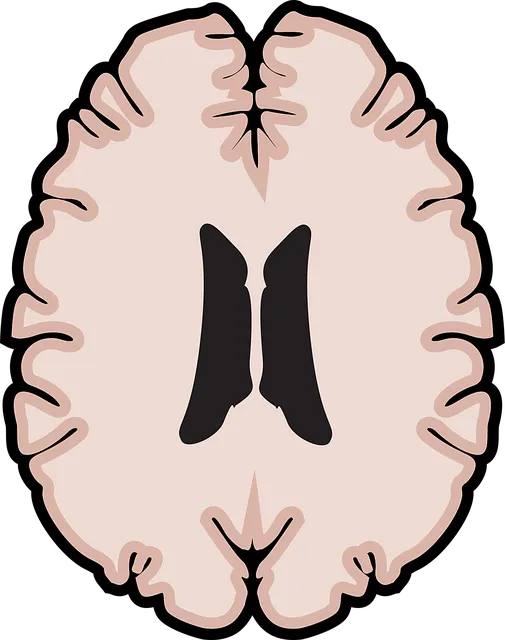Kaiser Permanente in Colorado Springs enhances mental health service accuracy through multifaceted approaches: leveraging advanced tools and evidence-based practices, integrating AI for diagnosis, fostering emotional intelligence, providing patient-centered care models, utilizing digital platforms, rigorous staff training, feedback integration, and addressing diverse community needs to improve patient outcomes and reduce stigma.
In Colorado Springs, the scrutiny of Kaiser’s mental health services highlights the ongoing quest for improved mental illness diagnosis accuracy. This critical aspect of healthcare has driven efforts to adopt comprehensive approaches, integrate advanced technologies, and enhance professional training. By focusing on these areas, from enhancing assessment tools to patient feedback loops, we aim to ensure more precise diagnoses and ultimately better outcomes for those seeking mental health support in Colorado Springs and beyond.
- Colorado Springs: Kaiser's Mental Health Services Scrutinized
- Enhancing Diagnosis Accuracy: A Comprehensive Approach
- Integrating Advanced Technologies for Better Assessments
- Training Professionals: The Cornerstone of Accurate Diagnoses
- Patient Feedback Loop: Crucial for Continuous Improvement
Colorado Springs: Kaiser's Mental Health Services Scrutinized

In Colorado Springs, the mental health services provided by Kaiser have come under increased scrutiny. This focus is driven by a growing recognition that accurate diagnosis and effective treatment require a multifaceted approach, including empathy-building strategies and cultural sensitivity in mental healthcare practice. By fostering emotional intelligence within the organization, Kaiser aims to improve patient outcomes and create a more inclusive environment for all individuals seeking mental health support.
The scrutiny involves evaluating how well Kaiser’s services address the diverse needs of its community, particularly considering cultural and social factors that can impact mental health diagnosis. This thorough examination is crucial in ensuring that mental health care aligns with best practices, respects individual experiences, and promotes healing rather than perpetuating stigma or misdiagnosis.
Enhancing Diagnosis Accuracy: A Comprehensive Approach

In Colorado Springs, Kaiser offers comprehensive mental health services designed to enhance diagnosis accuracy and improve patient outcomes. The healthcare provider employs a multi-faceted approach that includes advanced assessment tools, regular staff training, and patient-centered care models. By integrating innovative techniques such as data analytics and evidence-based practices, Kaiser strives to pinpoint mental health conditions more precisely, ensuring effective treatment plans tailored to individual needs.
Moreover, fostering mental wellness begins with proactive measures. Kaiser encourages patients to incorporate self-care routines into their daily lives, focusing on activities like Depression Prevention strategies, Self-Care Routine Development, and Mental Wellness Journaling Exercises. These practices not only support overall mental health but also empower individuals to actively participate in their well-being, complementing the professional care they receive from Kaiser’s dedicated team.
Integrating Advanced Technologies for Better Assessments

In the realm of mental health care, Colorado Springs’ Kaiser Permanente stands out for its commitment to integrating advanced technologies aimed at enhancing diagnosis accuracy. Through the implementation of AI-driven tools and digital assessment platforms, Kaiser is revolutionizing the way mental wellness services are delivered. These innovations not only aid in early detection but also help reduce the mental illness stigma by providing more objective and consistent evaluations. For instance, machine learning algorithms can analyze vast amounts of patient data to identify patterns indicative of specific mental health conditions, ensuring more precise diagnoses.
Furthermore, digital assessment tools offer patients a level of convenience and accessibility previously unattainable. Online platforms allow for remote consultations and self-awareness exercises, breaking down barriers to care. This shift is particularly beneficial in areas like Colorado Springs, where access to specialized mental health services might be limited. By leveraging technology, Kaiser Permanente aims to improve diagnostic accuracy while fostering a more inclusive environment that encourages individuals to seek help without fear of stigma.
Training Professionals: The Cornerstone of Accurate Diagnoses

In Colorado Springs, Kaiser offers comprehensive mental health services, a testament to their commitment to improving mental illness diagnosis accuracy. The foundation of this effort lies in rigorous training programs designed for professionals across various sectors. By equipping healthcare providers, counselors, and social workers with advanced skills, knowledge about the latest research, and an understanding of diverse patient populations, these initiatives aim to minimize misdiagnoses and improve overall treatment outcomes.
Kaiser’s Mental Wellness Podcast Series Production, for instance, provides a platform for experts to share insights on complex mental health topics. This not only raises awareness but also promotes evidence-based practices among professionals. Additionally, Social Skills Training plays a pivotal role in identifying subtle nuances that can indicate specific mental health conditions, enhancing the accuracy of diagnoses. Such efforts reflect Kaiser’s dedication to fostering mental wellness and ensuring individuals receive the most effective care possible.
Patient Feedback Loop: Crucial for Continuous Improvement

In the pursuit of enhancing mental illness diagnosis accuracy, patient feedback plays a pivotal role. Kaiser Permanente Colorado Springs, known for its comprehensive healthcare services, recognizes that integrating patient insights is essential for continuous improvement. By establishing robust feedback loops, mental health professionals can gain valuable insights into the patient experience. This includes understanding specific challenges, such as communication barriers or concerns about stigma, which may impact diagnosis and treatment adherence.
Effective feedback mechanisms enable patients to share their experiences, including positive aspects like effective communication strategies and helpful Mind Over Matter principles used by therapists. Conversely, it also allows them to voice areas for improvement, such as the need for better conflict resolution techniques among healthcare providers. This two-way dialogue fosters a culture of transparency and trust, ultimately leading to more accurate diagnoses and tailored treatment plans.
In Colorado Springs, the scrutiny of Kaiser’s mental health services highlights the need for continuous improvement in mental illness diagnosis accuracy. By adopting a comprehensive approach, integrating advanced technologies, and rigorously training professionals, we can enhance the overall quality of care. Patient feedback loops play a pivotal role in this process, ensuring that advancements are tailored to real-world needs. Thus, through collaborative efforts and innovative strategies, Colorado Springs can lead the way in improving mental health diagnosis accuracy, setting a standard for other regions to follow.






